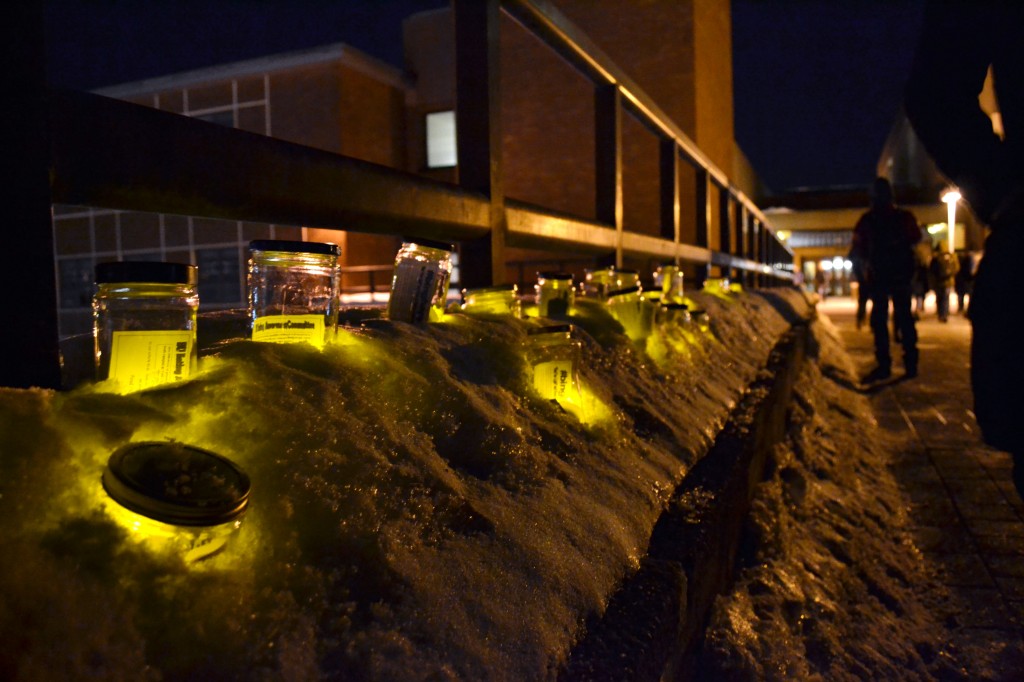
For this year’s National Eating Disorders Awareness Week, Binghamton University’s Eating Awareness Committee (EAC) wants to shine the light on the struggles of young adults.
Beginning Monday, the EAC hosted several events for the annual week aiming to educate people about eating disorders. The group, composed of faculty, students and interns interested in encouraging healthy body image and eating habits, wanted this year’s “Find Your Light” theme to encourage positivity, happiness and self-compassion.
According to the National Eating Disorders Association’s 2015 report, 20 percent of female and 10 percent of male college students have or have had an eating disorder and even more suffer from weight management issues.
The week kicked off with Monday night’s Library Tower Lighting in Glenn G. Bartle Library. Sarah Thompson, a lecturer for health and wellness studies (HWS) and a chair of EAC, spoke about the severity of eating disorders and emphasized that recovery is possible. Along the bridge leading toward Lecture Hall, jars were filled with slips of paper with positive affirmations or goals for 30 days, to be displayed at the Health Fair on March 25.
“The whole idea here is #Binghappy,” Thompson said. “We want to promote positivity: in ourselves, in our body image and our ability to do wonderful things at Binghamton University.”
Jessica Surdey, a HWS instructor and an EAC member, said most students experience disordered eating in the form of skipping meals, replacing meals with caffeine or overeating, which is linked with anxiety and depression.
“Eating disorders do not discriminate,” Thompson said. “They affect everybody from every background, males and females. There is not one population that is immune to eating disorders.”
Surdey said that since BU is a competitive school, eating and exercise habits can become unhealthy ways to control stress, putting students at high risk for eating disorders.
“At Binghamton, I have seen more demand for mental health services in the past year than I remember — and I was a student here,” Surdey said.
Thompson said that the media can both help and hinder body image through unattainable digitized images, but also through promoting knowledge and awareness of what is healthy.
The emphasis on the media was showcased during Tuesday night’s dining hall discussions, where students spoke about the effects of social media on self-perception. Khelan Todd, the resident director of Endicott Hall in Newing College and a member of EAC, asked students to consider how they present themselves on social media.
“You never know how many lives you can touch through social media and you never know how many people you can affect,” Todd said. “I choose positivity. It’s way easier to be positive than it is to be negative.
BU offers resources for students suffering from body image issues, Thompson said, such as the University Counseling Center, Ph.D students from the Psychological Clinic and campus nutritionist visits from the Nutrition Clinic satellite in Vestal. Sodexo also has a dietician who helps students create healthy meal plans free of charge, and the Recreation Center at the East Gym can help with exercise plans. The HWS department teaches courses on nutrition, exercise, stress management and wellness.
“While eating disorders are serious, potentially life-threatening illnesses, help is available both here, on campus and in our community,” Thompson said. “The struggle is real, but you are not alone.”


